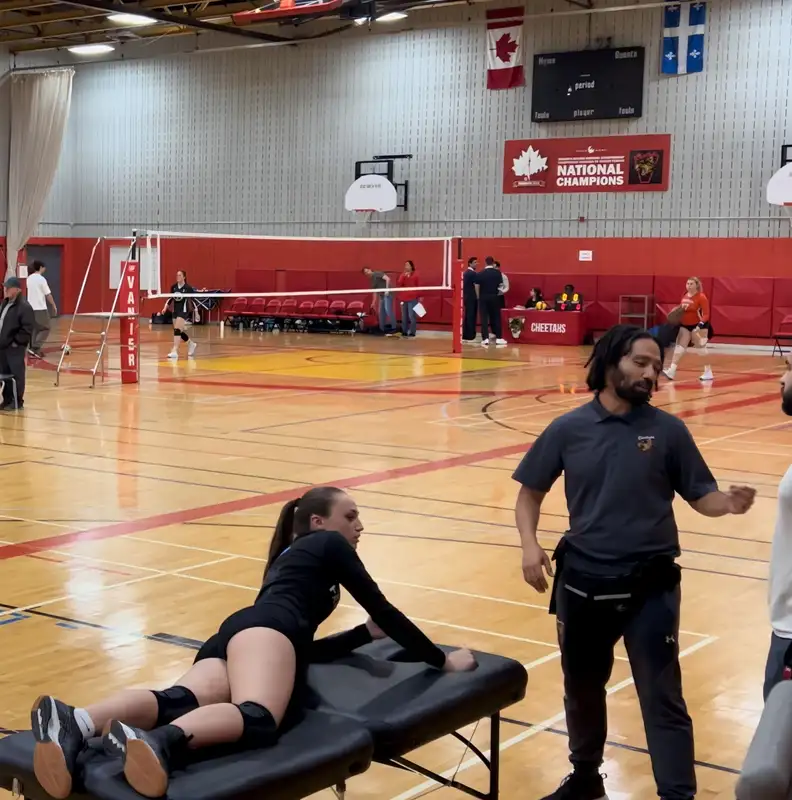1. Sprains and Strains
Sprains occur when ligaments (the tissues connecting bones to joints) are stretched or torn. Strains involve injuries to muscles or tendons (the tissues connecting muscles to bones).
Common Areas Affected:
- Ankles
- Knees
- Wrists
Prevention Tips:
- Warm-Up Properly: Engage in light aerobic exercises and dynamic stretches before activity.
- Strength Training: Build muscle strength to support joints.
- Use Proper Technique: Learn and maintain correct form in your sport.
- Wear Appropriate Gear: Use supportive footwear and protective equipment.
- Balance Exercises: Incorporate activities that improve balance and coordination.
2. Knee Injuries
Knee injuries range from mild strains to severe ligament tears, such as the Anterior Cruciate Ligament (ACL) injury.
Prevention Tips:
- Strengthen Leg Muscles: Focus on quadriceps and hamstring exercises.
- Flexibility Training: Stretch regularly to maintain joint flexibility.
- Avoid Overtraining: Gradually increase the intensity and duration of activities.
- Wear Supportive Footwear: Shoes with good cushioning and support can reduce stress on the knees.
3. Hand, Wrist, Elbow, or Shoulder Injuries
These injuries are common in sports that involve throwing, swinging, or repetitive arm motions, such as tennis, golf, and basketball.
Prevention Tips:
- Proper Technique: Ensure you are using the correct form to reduce strain.
- Strength and Flexibility: Incorporate exercises that strengthen the upper body and improve flexibility.
- Rest: Allow time for recovery between training sessions to prevent overuse injuries.
- Use Appropriate Equipment: Adjust racquet tension, club grip sizes, or ball weights as needed.
4. Tendonitis
Tendonitis is the inflammation of a tendon, often caused by repetitive movements or overuse.
Common Areas Affected:
- Shoulders
- Elbows (e.g., Tennis Elbow)
- Knees
- Wrists
Prevention Tips:
- Vary Activities: Cross-train to avoid repetitive stress on the same tendons.
- Gradual Progression: Increase activity levels slowly.
- Proper Equipment: Use gear that fits well and suits your activity.
- Listen to Your Body: Rest if you feel pain or discomfort in a tendon.
5. Dislocations
A dislocation occurs when bones in a joint become displaced due to a sudden impact or fall.
Common Areas Affected:
- Shoulders
- Fingers
- Kneecaps
Prevention Tips:
- Strength Training: Strengthen muscles around joints to provide better support.
- Protective Gear: Wear braces or supports if recommended.
- Safe Environment: Ensure playing surfaces are in good condition.
- Technique Training: Learn how to fall safely and use proper techniques in contact sports.
General Tips to Prevent Sports Injuries
- Warm-Up and Cool Down: Always begin with a warm-up and end with a cool-down session.
- Stay Hydrated: Drink plenty of water before, during, and after exercise.
- Balanced Training: Incorporate strength, flexibility, and endurance exercises.
- Rest Adequately: Give your body time to recover between workouts.
- Professional Guidance: Consult coaches or trainers to improve technique and training programs.
- Regular Medical Check-Ups: Keep up with health screenings to catch potential issues early.
If an Injury Occurs:
- Stop Activity Immediately: Continuing can worsen the injury.
- Apply First Aid: Use the R.I.C.E method—Rest, Ice, Compression, Elevation.
- Seek Medical Attention: Consult a healthcare professional for proper diagnosis and treatment.
Conclusion
Preventing sports injuries involves preparation, proper technique, and listening to your body’s signals. By taking proactive measures and following safety guidelines, you can enjoy your favorite sports while minimizing the risk of injury. Remember, if you do experience an injury, it’s important to consult with a medical professional promptly to ensure appropriate care and a safe return to activity.
